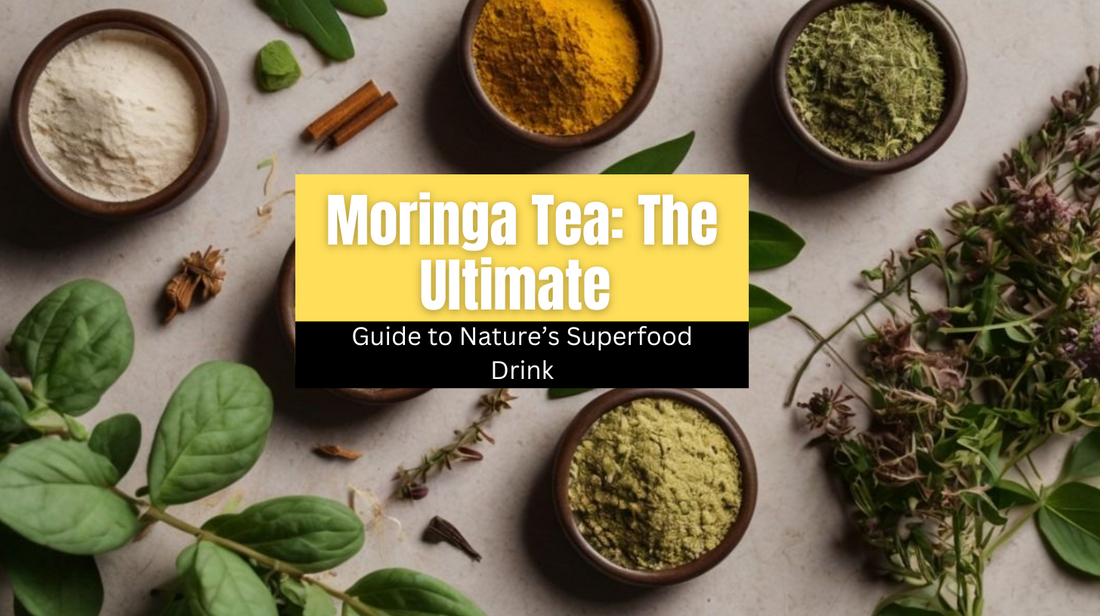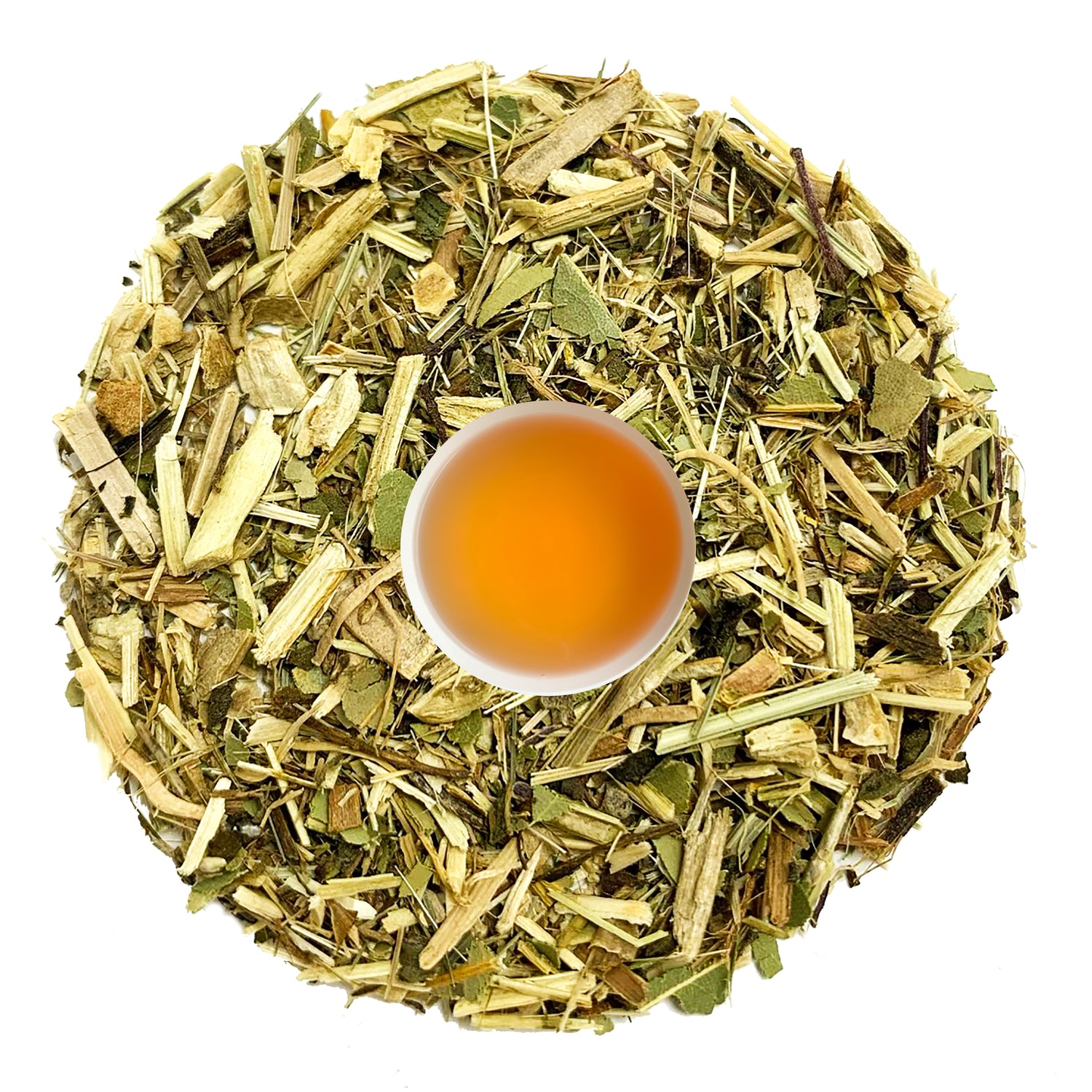
Moringa Tea: The Ultimate Guide to Nature’s Superfood Drink
In the world of superfoods, few plants have gained as much attention as Moringa oleifera. Often referred to as the "Miracle Tree," moringa has been celebrated for centuries in Ayurvedic and traditional medicine due to its incredible nutritional profile and wide-ranging health benefits.
Among the various ways to consume moringa, moringa tea has emerged as a favorite for those seeking a natural, caffeine-free, and nutrient-dense beverage.
In this guide, we’ll dive deep into the health benefits, nutritional composition, scientific research, and ways to incorporate moringa tea into your routine.
What is Moringa Tea?
Moringa tea is an herbal infusion made from dried leaves of the Moringa oleifera tree. Unlike traditional teas derived from the Camellia sinensis plant, moringa tea is caffeine-free and boasts an earthy, slightly grassy flavor similar to matcha but milder.
The leaves of the moringa plant contain an array of essential vitamins, minerals, antioxidants, and bioactive compounds, making this tea one of the most nutrient-dense herbal teas available.
Nutritional Profile of Moringa Tea
Moringa is often called a nutritional powerhouse because its leaves contain a high concentration of essential nutrients.
According to a study published in the journal Nutrients (source), moringa leaves contain:
- 7x More Vitamin C than Oranges
- 4x More Calcium than Milk
- 3x More Potassium than Bananas
- 2x More Protein than Yogurt
- 25x More Iron than Spinach
Additionally, moringa leaves are packed with:
- Antioxidants like quercetin and chlorogenic acid
- Anti-inflammatory compounds
- Amino acids (including all 9 essential amino acids)
- Polyphenols that support overall health
Drinking moringa tea provides a convenient way to absorb these nutrients and enjoy the vast health benefits this plant has to offer.
7 Proven Health Benefits of Moringa Tea (Backed by Science)
1. Rich in Antioxidants – Fights Free Radicals & Reduces Aging
Moringa tea is loaded with powerful antioxidants that combat oxidative stress and reduce cell damage, which can slow aging and lower the risk of chronic diseases.
Research Insight: A study published in the journal Food Science & Nutrition (source) found that moringa leaves contain high levels of quercetin, kaempferol, and chlorogenic acid, which help neutralize harmful free radicals in the body.
2. Supports Healthy Blood Sugar Levels
Moringa tea is gaining attention for its potential in balancing blood sugar levels, making it beneficial for diabetics or those at risk of diabetes.
Research Insight: A study published in Phytotherapy Research (source) showed that moringa leaf extract significantly reduced blood glucose levels in diabetic patients.
How It Works: The chlorogenic acid and isothiocyanates in moringa help regulate insulin levels and reduce sugar spikes.
3. Natural Anti-Inflammatory Properties
Inflammation is the root cause of many chronic diseases, including arthritis, heart disease, and autoimmune disorders.
Research Insight: A study published in the Journal of Inflammation (source) found that moringa leaf extract significantly reduces inflammatory markers in the body.
How It Works: Moringa contains isothiocyanates, flavonoids, and phenolic compounds that combat inflammation and may help relieve joint pain and muscle soreness.
4. Boosts Heart Health & Lowers Cholesterol
Moringa tea supports cardiovascular health by reducing cholesterol levels and improving blood circulation.
Research Insight: A study in the Journal of Ethnopharmacology (source) showed that moringa significantly reduced LDL (bad) cholesterol levels while boosting HDL (good) cholesterol.
How It Works: The plant's natural compounds prevent plaque buildup in arteries, reducing the risk of heart disease and stroke.
5. Enhances Brain Function & Mental Clarity
Moringa tea is known to improve cognitive function, memory, and mental clarity.
Research Insight: A study published in Oxidative Medicine and Cellular Longevity (source) found that moringa's antioxidants protect neurons and reduce the risk of neurodegenerative diseases like Alzheimer’s and Parkinson’s.
6. Supports Weight Loss & Metabolism
Moringa tea is a great addition to any weight management plan.
How It Works:
-
Boosts metabolism and fat breakdown
-
Reduces cravings and appetite
-
Regulates blood sugar to prevent fat storage
Pro Tip: Drink moringa tea before meals to reduce calorie intake and boost metabolism naturally.
7. Detoxifies the Body & Supports Liver Health
Moringa tea is a natural detoxifier, helping to flush toxins from the body.
Research Insight: A study in the Journal of Food Science and Technology (source) found that moringa supports liver function and enhances detoxification enzymes.
How to Make Moringa Tea (Easy Recipe)
Ingredients:
- 1 tsp moringa tea leaves
- 1 cup hot water (not boiling)
- Lemon or honey (optional)
Instructions:
- Add 1 teaspoon of dried moringa leaves to a cup.
- Pour in hot (not boiling) water and let it steep for 5-7 minutes.
- Strain, add honey or lemon if desired, and enjoy!
Final Thoughts & Call to Action
Moringa tea is an ancient superfood with modern science-backed benefits. Whether you’re looking to boost energy, improve digestion, regulate blood sugar, or enhance immunity, this tea is a must-have in your wellness routine.
☕ Try Our Premium Moringa Tea Today! Shop Now
Frequently Asked Questions (FAQs)
Q1: Can I drink moringa tea every day?
Yes! 1-2 cups per day is safe and beneficial.
Q2: Is moringa tea caffeine-free?
Yes, completely caffeine-free.
Q3: Can pregnant women drink moringa tea?
Consult a doctor first, as moringa may affect pregnancy hormones.










